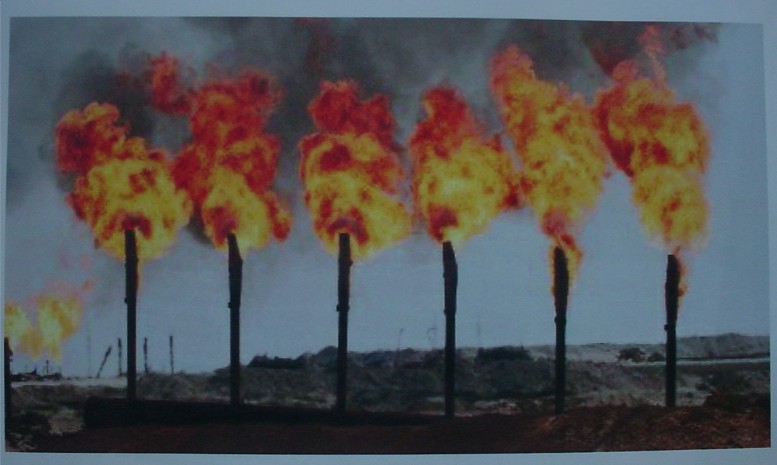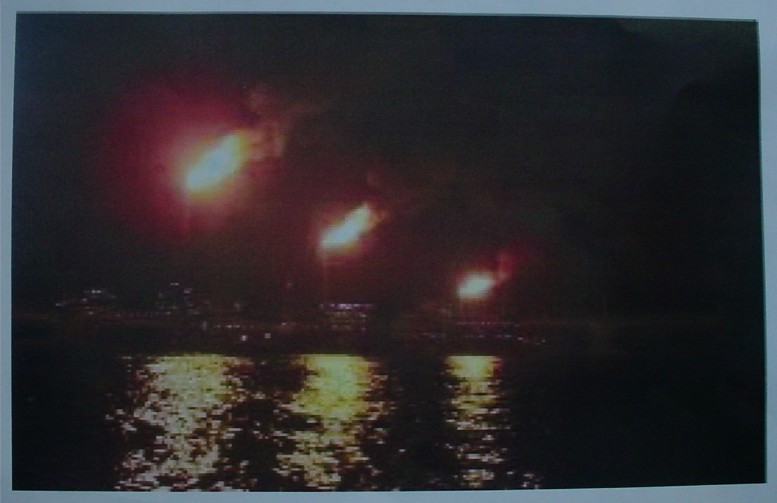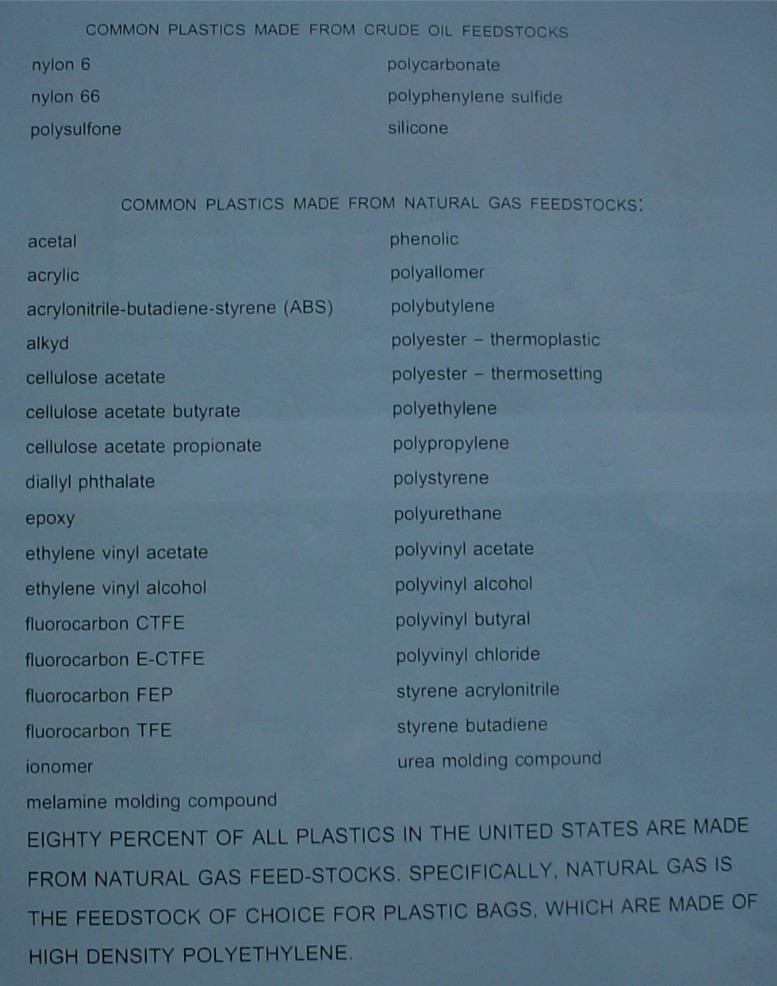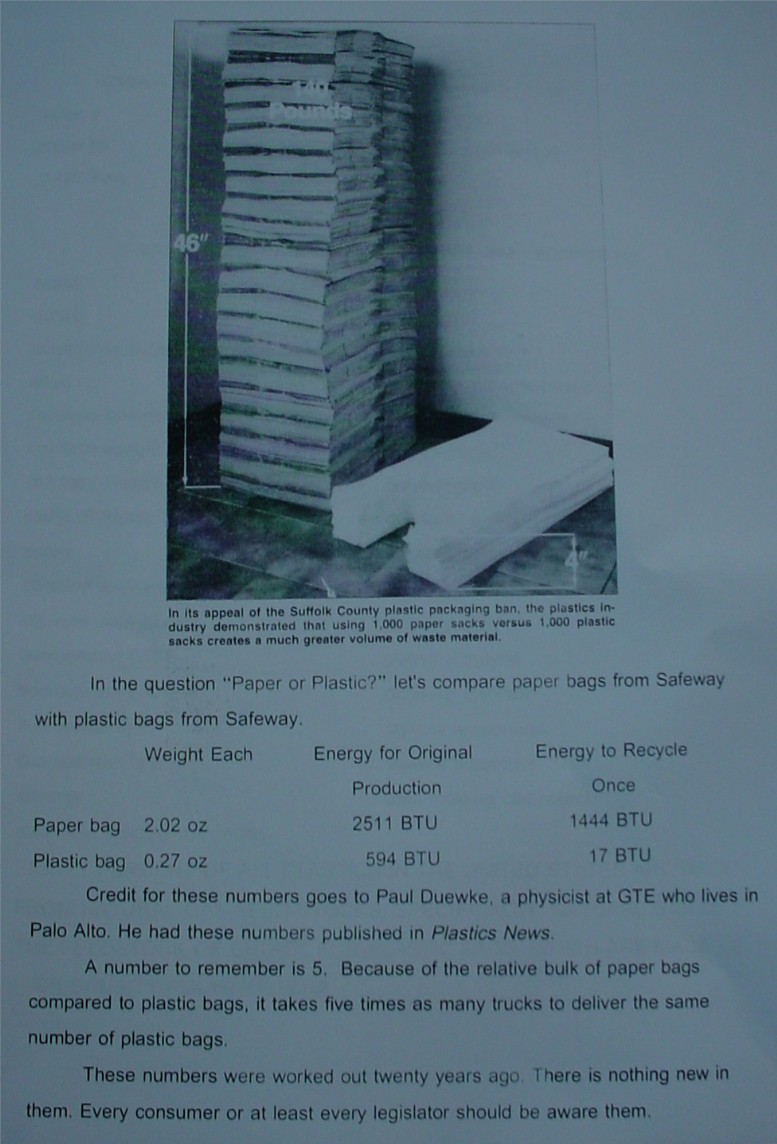Herb Kelty
September 13 at 11:45 AM
Plastics Myth-Busting
Herb Kelty is the founder of Exotec, a Palo Alto based maker of
molding machines for manufacturing plastic parts. Before Exotec Herb
worked in the Materials and Process Laboratories of North American
Aviation and Litton Guidance and Control Systems, and has been a member
of the Society of Plastics Engineers.
Herb will present and then refute some of the misinformation
regarding plastics, as well as describe some of the unheralded problem
potentials of the material. The talk will include:
-The raw materials of plastics (hint: they're not usually oil)
-Biomaterial sources of plastic
-Which should you pick: paper or plastic? (how Whole Foods got it
wrong)
-What is in commercial plastics (flame retardants, softeners,
bacticides, tints, and even phthalates)
-What is the lifetime of plastics (it ain't forever)
-The famous gyre of plastic in the Pacific Ocean
Herb began his talk by handing out the
following, which summarized much
of his material:
Then he explained that the main
feedstock for most plastics is natural gas, which is so cheap that a
lot of it is vented and burned in dramatic flares near the oil wells
where it is found. It's easy to see them in places like Louisiana where
they are typically found.
If the gas isn't going to be used,
burning it like this is actually safer and better for the atmosphere
than just venting it. For one thing, natural gas is a much more potent
greenhouse gas than the carbon dioxide that it burns down to.
Herb explained that paper bags must be
reused at least three times to be competitive with plastic from an
energy investment point of view. Cloth bags must be reused 130 times
for a similar payback point to be reached. As a personal matter, he
uses paper bags to collect paper for recycling, mainly so that when
enough has been collected he can simply throw the whole collection
(including the bag) in the bin. Plastic bags are much better for
collecting used kitty litter and the like. Unfortunately a lot of
plastic bags are not recycled.
During Q&A a lot of other topics came up.
The size of the plastic gyre in the
Pacific ocean varies according to whom you talk to. Some say it
is twice the size of the USA, others say it's the size of Texas. Most
of it is not visible, because it doesn't always float to the top. Most
of it is polyethylene, a cheap and light plastic. In general all
plastics that have a specific gravity less than 1.05 (that of sea
water) end up in it. There are some microbes that eat into it.
Using chemical analysis, you can trace
plastics back to the manufacturer just the way you can with gold.
Weight or volume are the best ways to
measure plastic output, mainly because the price tends to be buried in
the purchase price of other goods.





